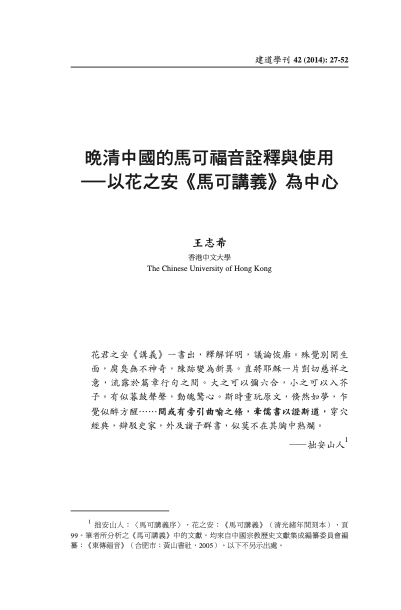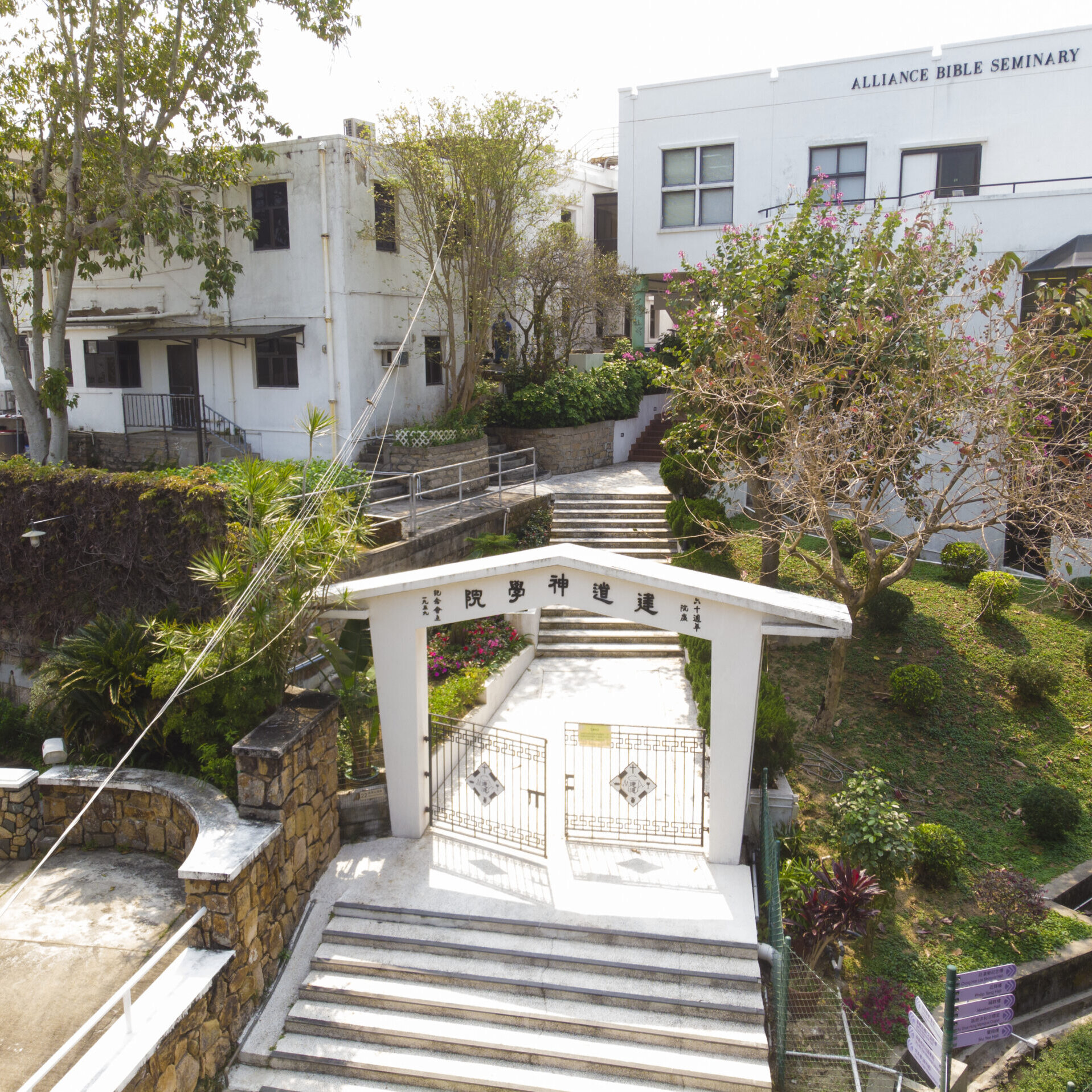晚清中國的馬可福音詮釋與使用——以花之安《馬可講義》為中心/王志希
王志希
撮要
十九世紀新教傳教士入華後,在翻譯聖經的同時,亦開始在晚清中國的 歷史處境之中對聖經文本進行「詮釋」與「使用」。德國傳教士花之安(Ernst Faber,1839-1899年)出版於1875年的《馬可講義》,便是一個重要典範。本文擬探討花之安在《馬可講義》之中如何因應晚清中國的社會文化處境,來「詮釋」與「使用」馬可福音文本,使該文本與中國發生聯繫,以致在某些晚清華人看來,簡直將「腐朽」的馬可福音「化為神奇」。
ABSTRACT
While translating Bible into Chinese, protestant missionaries living in the environment of 19th century China also interpret and use the biblical texts in their works written in Chinese, among which Commentary on Mark’s Gospel by Ernst Faber (1839-1899), one German missionary, is one typical example. The present paper will inquire into how Ernst Faber, in response to the socio-cultural context of late Qing China, interpreted and used the texts of Mark’s Gospel in his commentary, associating those specific texts with China, so as to make the “useless” Gospel into a “useful” one in the eyes of some Late Qing Chinese readers.
原載於《建道學刊》42期(2014年7月),頁 27-52。
最新文章
新手牧者研究計劃(三):新手牧者的身心靈狀態 / 盧慧儀
2025 年 11 月 19 日
【教牧退休】好好理財 退而不憂 / 林本利
2025 年 10 月 1 日
【教牧退休】生前身後的管理:平安三寶 / 陸文慧
2025 年 10 月 1 日
編輯精選
[電子書]困境與抉擇:「建道研究中心30週年誌慶」跨學科研討會論文集/廖炳堂、倪步曉主編
2025 年 1 月 2 日
從梧州到長洲:建道神學院125年的挑戰與恩典 / 陳智衡
2023 年 10 月 1 日
微小教會的見證/高銘謙
2023 年 6 月 1 日







